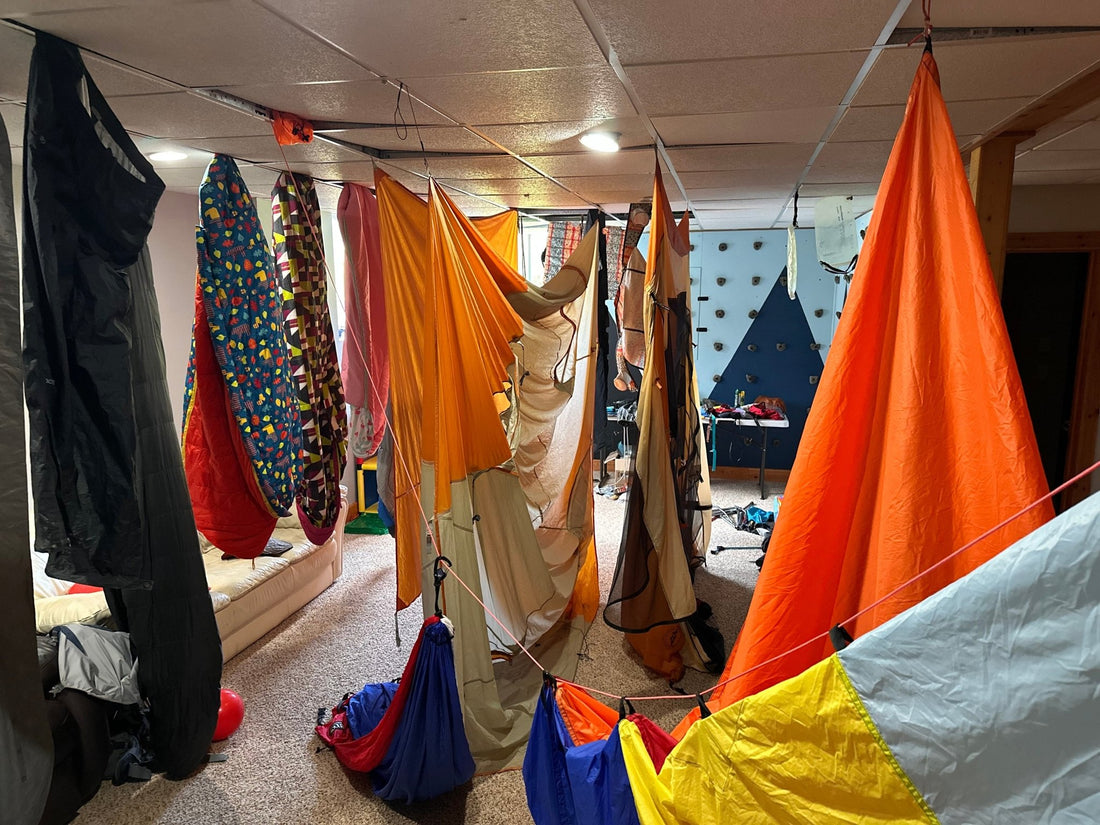
End-of-Season Care for Your Camping Gear: Cleaning, Airing Out, and Storage Tips
Jerod ArlichShare
As the camping season winds down, it’s time to give your gear the attention it deserves. Properly cleaning, airing out, and storing your camping equipment not only extends its lifespan but also ensures that it’s ready to go when adventure calls again. Here’s a step-by-step guide to help you care for your gear at the end of the season.
1. Cleaning Your Camping Gear
Before packing everything away, it’s crucial to thoroughly clean your gear. Dirt, sweat, and food particles can attract pests, lead to mold growth, or cause unpleasant odors. Here’s how to tackle the task:
• Tents: Start by setting up your tent in a clean, dry area. Shake out any dirt or debris. Use a soft brush to clean the exterior, and wipe down the interior with a mild soap solution. Avoid harsh detergents that could damage the fabric. Pay special attention to zippers and seams, which can trap dirt. Rinse thoroughly with clean water and let it dry completely.
• Sleeping Bags: Check the care label before washing. Most sleeping bags can be machine washed on a gentle cycle with a mild detergent. Use cold water to avoid damaging the insulation. Avoid fabric softeners as they can reduce the bag’s effectiveness. After washing, air dry if possible or tumble dry on low with a couple of tennis balls to help fluff the insulation.
• Backpacks: Empty all pockets and shake out any loose dirt. Spot clean with a mild detergent and a soft brush. If your backpack is particularly dirty, submerge it in a tub of lukewarm water with mild soap, then rinse thoroughly. Hang it to dry in a well-ventilated area out of direct sunlight.
• Cooking Gear: Clean all utensils, pots, and pans with hot, soapy water. If you’ve used a portable stove, wipe it down and ensure it’s free of grease and food residue. For hydration systems, like water bladders or bottles, use a bottle brush and a mix of water and baking soda or vinegar to scrub the insides. Rinse thoroughly and let everything dry completely.
2. Airing Out Your Gear
Even after cleaning, your gear needs to be completely dry before storage to prevent mold and mildew. Here’s how to air out your equipment effectively:
• Tents and Tarps: Set them up in a shaded, breezy area. Ensure all flaps and doors are open to allow air to circulate. Leave them out until you’re confident they’re bone dry.
• Sleeping Bags and Sleeping Pads: Lay them out flat or hang them in a dry, shaded area. Flip them occasionally to ensure both sides dry evenly.
• Backpacks and Clothing: Hang these items in a well-ventilated area. Make sure all pockets and compartments are open so that air can flow through.
• Cooking Gear: Leave pots, pans, and utensils out on a clean surface to air dry completely before packing them away.
3. Storing Your Camping Gear
Once your gear is clean and dry, it’s time to store it properly to ensure it remains in good condition for next season.
• Tents and Tarps: Fold your tent loosely and store it in a breathable bag, rather than compressing it into a stuff sack. This helps prevent damage to the fabric and zippers over time. Store in a cool, dry place, away from direct sunlight.
• Sleeping Bags: Store sleeping bags in a large cotton or mesh storage sack to maintain loft. Avoid storing them compressed in their stuff sacks for long periods. Hang them in a closet or place them in a dry, temperature-controlled area.
• Backpacks: Store your backpack in a dry, cool place. Stuff it with paper or cloth to help maintain its shape and ensure all zippers and buckles are closed to prevent damage.
• Cooking Gear: Stack pots and pans with paper towels or cloth between them to prevent scratches. Store your stove and utensils in a dry, cool area, and consider keeping small items together in a bin for easy access.
Final Tips
• Check for Damage: Before storing your gear, inspect everything for wear and tear. Repair small rips, tears, or broken parts now, so you’re not caught off guard next season.
• Keep a Gear Inventory: Make a list of all your camping gear and note where it’s stored. This will save you time and frustration when you’re packing for your next trip.
• Consider Climate: If you live in a humid climate, consider using desiccant packets or a dehumidifier in your storage area to keep moisture at bay.
Taking the time to clean, air out, and properly store your camping gear at the end of the season will keep it in top shape for years to come. Plus, you’ll thank yourself when you pull out fresh, ready-to-go gear for your next outdoor adventure. Happy camping!
